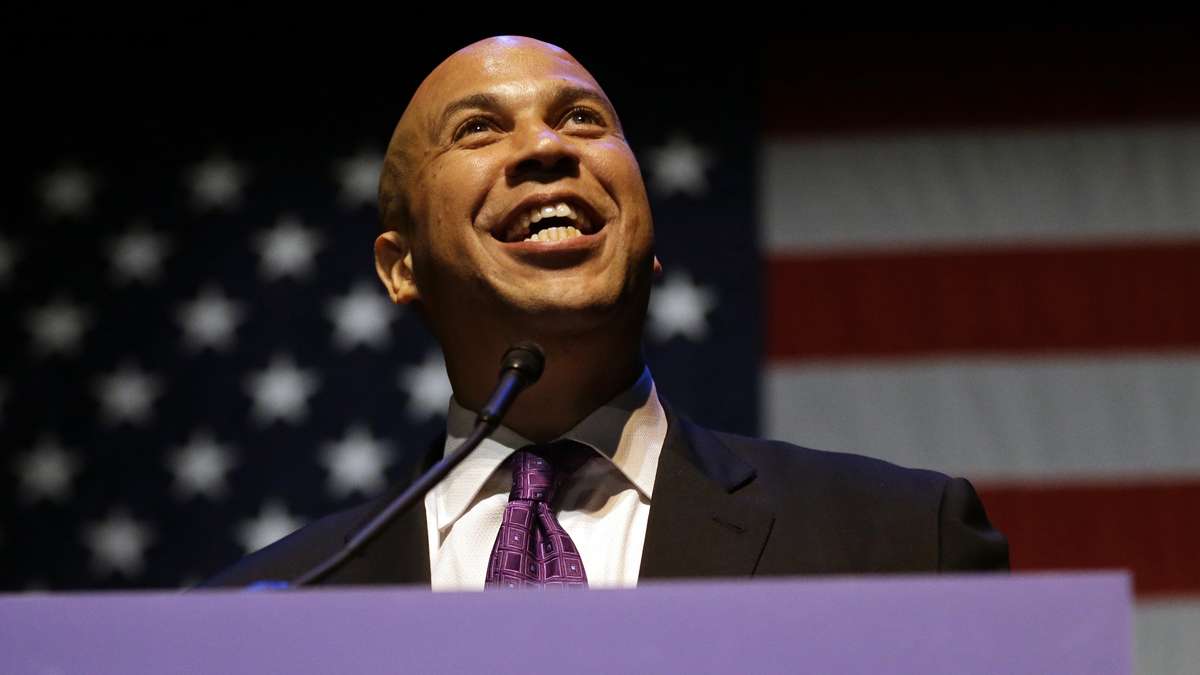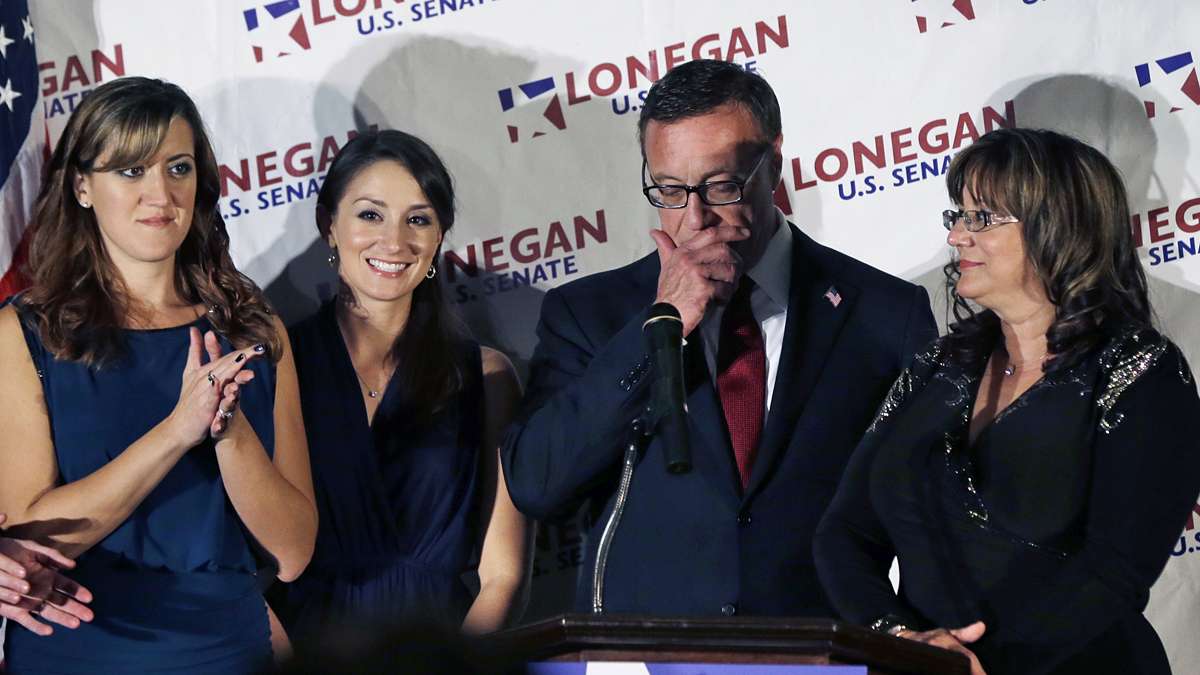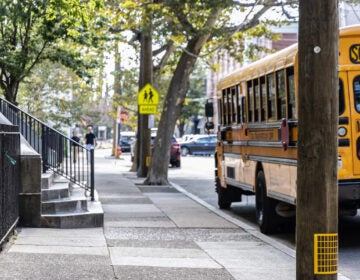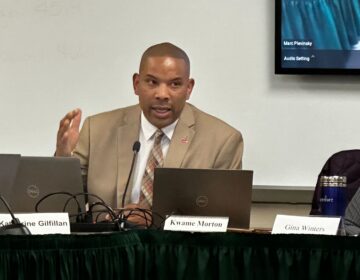With negotiations ongoing, Hite adds factors for Philly teacher recall and assignment
Among the items that Superintendent William Hite included in this week’s “status report” to state officials that preceded the release of a $45 million state grant was an explanation of how seniority is no longer the sole factor in determining where teachers are assigned.
“For the 2013-14 school year, the primary factor in making assignment and transfer decisions — including decisions about recall from lay-off — has been and will be the best interests of the students and the school’s educational program,” the superintendent’s letter to acting Secretary of Education Carolyn Dumaresq said. “Seniority will be among the relevant factors considered, but not the sole factor. For example, when restoring teacher, counselor, and secretarial positions in preparation for school opening this fall, decisions were driven by the best interests of school communities, including the need to have staff who are invested in the schools in which they were working.”
Both Hite and state officials said this was only one of many factors that led to Gov. Corbett’s decision to release $45 million in state funds Wednesday. But this hot-button issue, as well as others involving longstanding rules and working conditions, is a major point of contention in the ongoing negotiations between the District and the Philadelphia Federation of Teachers. The District has long sought to mute the impact of seniority, which gives teachers the right to choose their job at the expense, many say, of allowing a school’s leadership to build its own team.
What is happening now is that the District is, in effect, dictating terms on the teachers while at the same time negotiating with the union for a new agreement.
Hite said at a press conference that when the District moves teachers around — after layoffs or as part of the so-called “leveling” process now underway — the contract specifies that seniority should be the only factor governing these moves. For instance, if a school must lose a classroom teacher due to smaller-than-expected enrollment, it is the least senior teacher who goes. Conversely, when a vacancy opens up in a school, the most senior teacher who wants the job gets it, even if that person is at odds with the school’s pedagogical approach and educational philosophy.
Hite described the additional criteria besides seniority that will now be considered during the “leveling” process, in which teachers are moved around based on where the students actually enroll. With this year’s leveling process taking place amid fiscal austerity, staffs at some schools will be reduced as other schools gain.
For Hite and other key players, including members of Gov. Corbett’s administration, the seniority issue goes to the heart of building a school culture of accountability, one that rewards performance rather than longevity. In Hite’s view, it better serves the students to give the principal more power to choose who works in the school based on their contributions.
In assignments and transfers caused by leveling — deciding who gets cut or who comes in — “the principal would follow the process for seniority unless there was a compelling reason that would create an adverse impact on the school,” Hite said in Wednesday’s press conference. His list of “compelling reasons” includes whether a teacher is part of a school leadership team, works in afterschool activities with students, has gotten a grant that will disappear with the teacher, is conducting professional development for other teachers, or has “expertise” that would be missed.
Philadelphia Federation of Teachers president Jerry Jordan countered that from his perspective, those criteria are more subjective than objective.
“Those things happen quite frequently when teachers retire and get promotions to other positions, and there are other people in schools who assume those responsibilities,” he said. “I find it very difficult to believe in any school, that one person is so much more valued over another that they can’t leave. And that’s whether we’re talking about leveling, retirement, promotions.”
Jordan also criticized the District for delaying the leveling process, which under contract is supposed to be completed by Oct. 15, until Oct. 28. It is too far into the school year and will cause more disruption, he said.
“Marks are due on Nov. 20,” he said. “Teachers will be asked to grade students after being with them for only a little over two weeks.”
The District first strayed from the provisions of the collective bargaining agreement during the process of recalling secretaries and counselors from layoffs at the beginning of the school year. For the secretaries, according to Jordan, the union and the District agreed that secretaries would be assigned to the same school they left in June. (This happened, but not all secretaries were recalled because many schools had more than one.) For counselors, however, there was no agreement, and the union has filed a “class action” grievance against the District’s decision not to follow seniority, Jordan said.
Jordan explained that most counselors wanted to return to the schools they had left in June. But the District didn’t recall enough counselors to allow that to happen.
“One of the real big problems, 24 schools closed, and three schools were converted to charters,” Jordan said. That left 27 counselors, many with significant seniority, “who didn’t have a June school to return to. Those people were just left hanging out there and not given the opportunity to return to a counseling position in the system. The procedures that Dr. Hite and his team followed led to ‘Well, they’re just laid off.’ There we have a problem.”
Jordan said that people who had just a few years experience “were returned by virtue of having been the counselor in June” in a school that happened to stay open. This is not acceptable to the union, he said.
There is no indication of when the District and the PFT might finally reach an agreement to replace the contract that expired in August. They continue to talk almost every day. The District is still seeking $133 million in financial concessions from four unions, with most of that, $103 million, expected to come from the teachers.
Jordan offered no insight into how close to an agreement the two sides are, or when there might be a resolution. Similarly, the School Reform Commission, Hite, and key state officials have been mum on when they might run out of patience and try to impose terms on the union — a move that would most certainly lead to a legal battle.
Last time, Jordan said, an agreement wasn’t reached until January, “over the Martin Luther King weekend. These things take time.”
NewsWorks republishes articles from the Philadelphia Public School Notebook, an independent, nonprofit news service covering Philadelphia’s public schools since 1994, for a wider audience.
WHYY is your source for fact-based, in-depth journalism and information. As a nonprofit organization, we rely on financial support from readers like you. Please give today.








